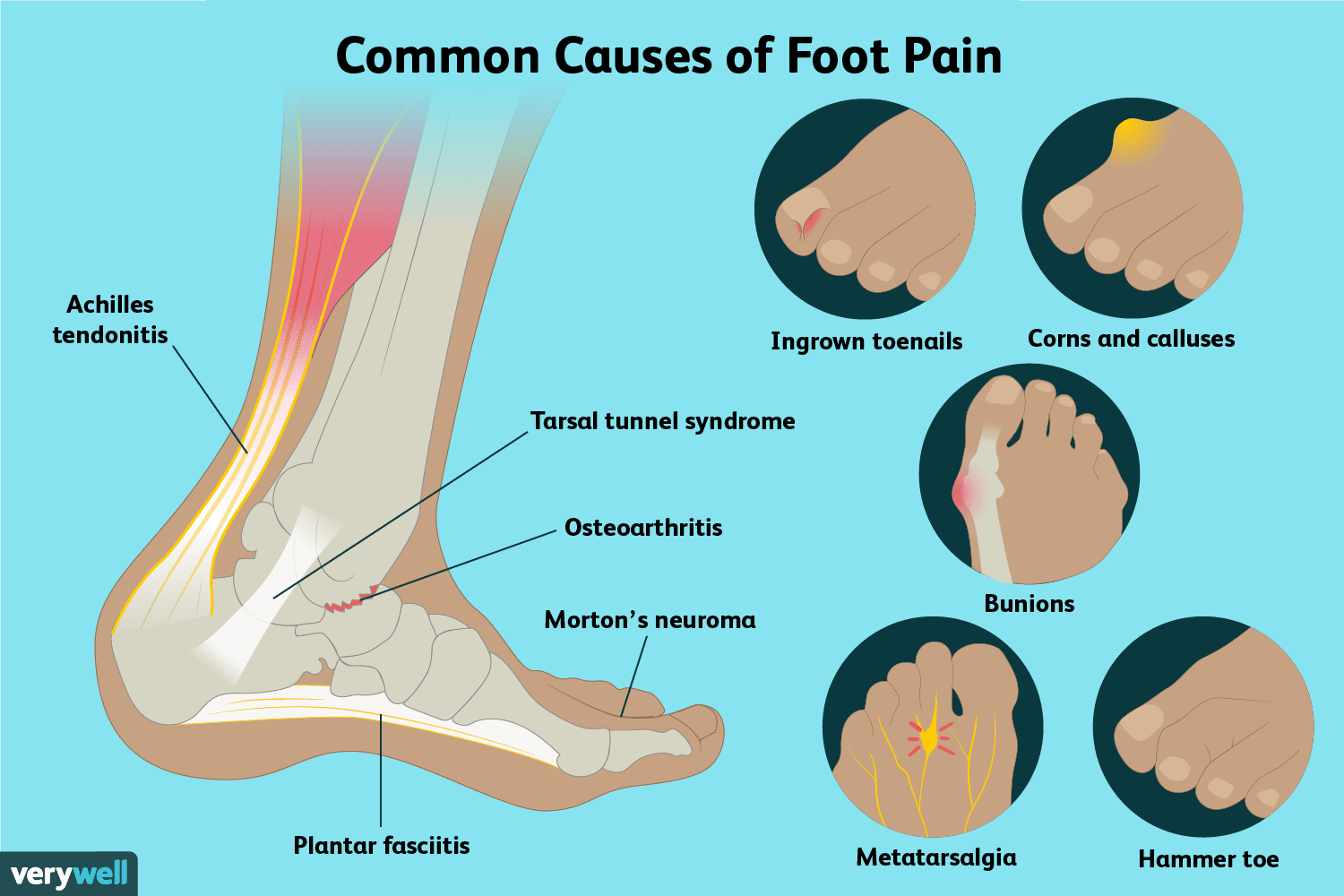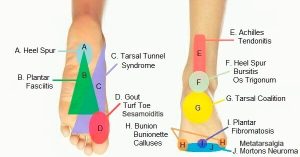
Foot pain is a common problem that affects people of all ages and lifestyles. Whether it’s a dull ache, sharp stabbing sensation, or persistent soreness, foot pain can interfere with daily activities and overall quality of life. Understanding the root causes of foot pain is essential to finding effective treatment and relief. In this article, we will explore the most common causes of foot pain, their symptoms, and possible treatment options to help you better understand why your feet hurt.

Foot pain can originate from various conditions, injuries, or underlying health issues. Below are some of the most frequently encountered causes.
Plantar fasciitis is one of the leading causes of heel pain. It occurs when the plantar fascia, a thick band of tissue running along the bottom of the foot, becomes inflamed due to overuse, strain, or injury.
Flat feet occur when the arches of the feet collapse, causing the entire foot sole to touch the ground. This condition can cause foot fatigue, pain, and imbalance.
Arthritis, particularly osteoarthritis and rheumatoid arthritis, can affect the joints in the feet, causing inflammation, stiffness, and pain.
A bunion is a bony bump that forms at the base of the big toe, often caused by pressure or misalignment.
Peripheral neuropathy is nerve damage that can cause burning, tingling, numbness, or sharp pain in the feet.
Stress fractures are tiny cracks in the bones of the feet caused by repetitive impact or overuse.
In addition to the common causes listed above, several other conditions may contribute to foot pain:
Bony growths on the heel bone can cause pain, especially when standing or walking.
Inflammation of tendons, such as the Achilles tendon, can cause localized pain and swelling.
A thickening of tissue around a nerve between the toes, causing sharp or burning pain.
A form of arthritis caused by uric acid crystals accumulating in joints, leading to sudden, severe foot pain.
If your foot pain is persistent, worsening, or accompanied by swelling, redness, or inability to bear weight, you should seek medical advice. Early diagnosis is crucial to prevent further damage and ensure proper treatment.
For mild to moderate foot pain, you can try the following self-care measures:
Understanding the question, “Why do my feet hurt?” requires identifying the underlying cause of your foot pain. From plantar fasciitis and flat feet to arthritis and nerve conditions, the causes vary widely and require different treatments. If your foot pain is persistent or severe, consult a healthcare professional for an accurate diagnosis and personalized care plan. Taking early action can help you alleviate pain, improve foot health, and maintain an active lifestyle.